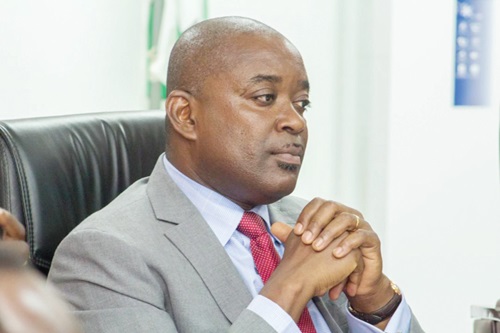The Ghana Tertiary Education Commission (GTEC) has declared its intention to begin the arrest and prosecution of individuals who falsely claim the title of “honorary professor” — a move that deserves nothing short of full national support.
For far too long, charlatans and opportunists have exploited the ignorance and goodwill of the Ghanaian public by parading with academic titles they have neither earned nor deserve. GTEC’s decision is not only timely; it is legally grounded, morally necessary, and academically justified.
The law is unequivocal. Section 8(4)(d) of the Education Regulatory Bodies Act, 2020 (Act 1023), empowers GTEC to regulate the use of academic nomenclature, including titles such as “Professor”, “Doctor”, “Chartered”, and even institutional designations such as “University” and “College.”
Under this law, the false use of such titles constitutes an offence punishable by fines and imprisonment. GTEC, as the body mandated to uphold standards within Ghana’s tertiary education sector, is acting within the full scope of its legal authority in enforcing these provisions.
The so-called “honorary professor” title is, in fact, a non-existent designation within Ghana’s academic framework.
It cannot be conferred, not even by the most reputable of institutions. As GTEC’s Director-General, Professor Ahmed Jinapor, rightfully stated, professorship is an academic rank earned through years of rigorous teaching, research and scholarly contributions — not through honorary awards or foreign connections to dubious institutions.
The title of Professor is not for sale, neither is it a vanity label to be worn by individuals who have not spent a single day in a classroom, let alone published peer-reviewed research or mentored doctoral candidates.
Let us be clear: this is not a trivial matter.
The proliferation of fake titles undermines the integrity of Ghana’s education system.
It deceives the public, demeans the accomplishments of legitimate scholars, and distorts the meritocratic ideals that education is built upon.
In a country that values education as a cornerstone of development, tolerating such deception is dangerous and deeply counterproductive.
It allows fraudsters to gain undeserved influence, sometimes even occupying positions of authority or trust in institutions and communities, based purely on fabricated credentials.
Even more troubling is the ethical confusion such misrepresentation creates.
When an individual assumes the title “Doctor” or “Professor” without the requisite academic background, they blur the lines between honorary recognition and earned qualification.
This opens the door to public confusion and, in some cases, real harm — particularly when individuals present themselves as experts in fields such as health, education or science.
The risk to public safety and informed decision-making is too grave to ignore.
Furthermore, the trend of receiving unverified “honorary” titles from unaccredited foreign institutions must be halted.
These titles are often obtained for a fee, not on merit, and are used to inflate resumes and social standing at home.
GTEC has made it abundantly clear that any title not earned through a structured academic process and conferred by an accredited and chartered institution is null, void and potentially criminal under Ghanaian law.
In the same vein, honorary doctorates — though a long-standing academic tradition — do not bestow on the honouree the right to use the title “Dr” in any formal, professional or academic context.
They are ceremonial at best and symbolic at most.
Using them as though they were earned degrees amounts to impersonation, plain and simple.
The Daily Graphic strongly believes the commission’s emphasis on public education alongside prosecution is commendable.
he public must understand that academic titles carry meaning and weight.
They are not mere decorations.
We call on civil society, the media and all well-meaning Ghanaians to support GTEC in this clean-up effort.
It is time to re-establish a culture of integrity, merit and truth in our educational discourse.
GTEC is not merely defending academic titles; it is defending the very foundation of higher learning in Ghana.
And in doing so, it sends a powerful message that the era of empty accolades and intellectual deception is over.
Let the law take its course — and let integrity lead the way.

